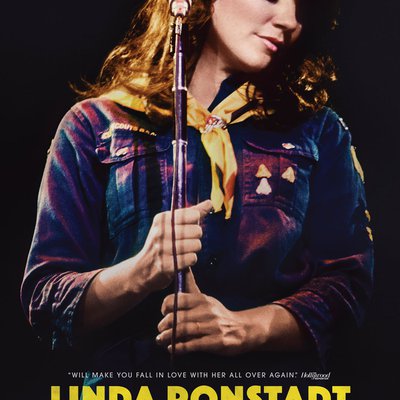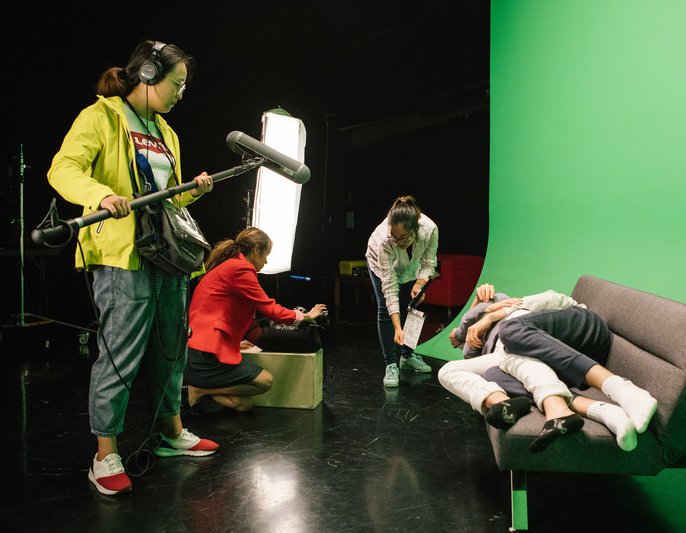
MFAFilm
Develop your vision in a film program that goes beyond training and convention.
Overview
Make an impact on the future of cinema
The MFA Film program prepares you to create and thrive in the rapidly changing landscape of contemporary film and cinematic arts. Our unique multidisciplinary culture provides the ideal conditions for exploring the themes and topics you care about from many perspectives, including artist, director, craftsperson, or entrepreneur. With the mentorship of our award-winning faculty, you’ll strengthen your conceptual capabilities, refine your working methods, and expand your understanding of the moving image. Like CCA Film on Facebook for the latest updates.
Explore Film
@ccafilm
May 9, 2024
💐💐💐💐💐💐💐
2024 MFA Screening
🎬The Roxie🎬
❤️❤️❤️❤️❤️❤️

May 7, 2024
💫💫💫Tonight!!!!💫💫💫
CCA MFA FILM SCREENING
🎬🎬🎬🎬🎬🎬🎬🎬🎬🎬
Reception at 518 Valencia St
🍿🍿🍿🍿🍿🍿🍿🍿🍿🍿🍿
Films begin at the Roxie at 6pm!
📽️📽️📽️📽️📽️📽️📽️📽️📽️📽️📽️

May 7, 2024
2nd year MFA student Haolin Ken Wang’s installation Messy Codes is up right now in the production stage on the CCA campus!!!!

May 2, 2024
Meet Lingqi, a BFA film student graduating this week who’s screening her senior thesis TOMORROW at 6pm at Timken Hall!!
Studios & Shops
Explore a range of filmmaking modes and production methods

Our facilities support a wide range of filmmaking modes and production methods, from experimental and improvisational techniques to more formal narrative, documentary, and hybrid models. Graduate students have 24-hour access to film studios, editing suites, and a sound mixing room.
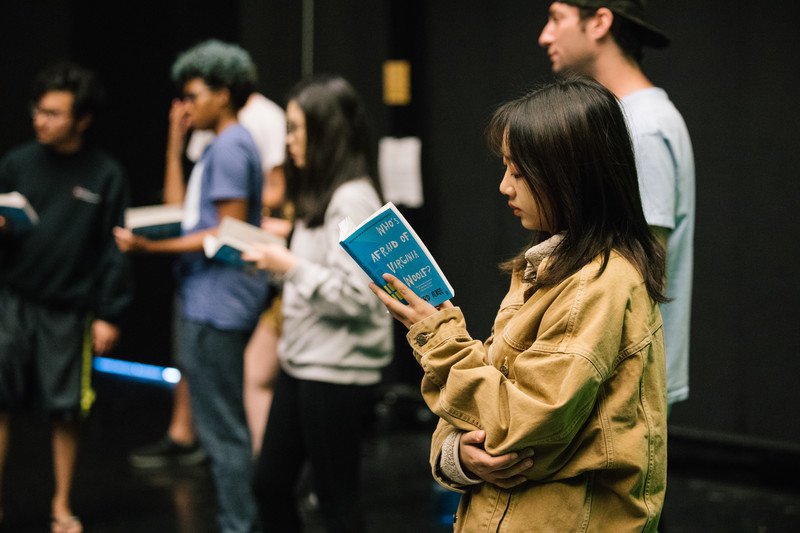
Multidisciplinary experiences
As an MFA Film student, you’ll enhance your studio practice through coursework in cinema history and theory. Taught by experts in filmmaking and critical studies, these courses push you to see your work in a broader cultural context, overcome challenges, define your artistic voice, and interrogate creative decisions in your own work. Electives round out the program experience, giving you opportunities to incorporate other artistic disciplines. Our lecture series and CCA Film Week offer students connection and dialogue with filmmakers and artists who are making groundbreaking new work.
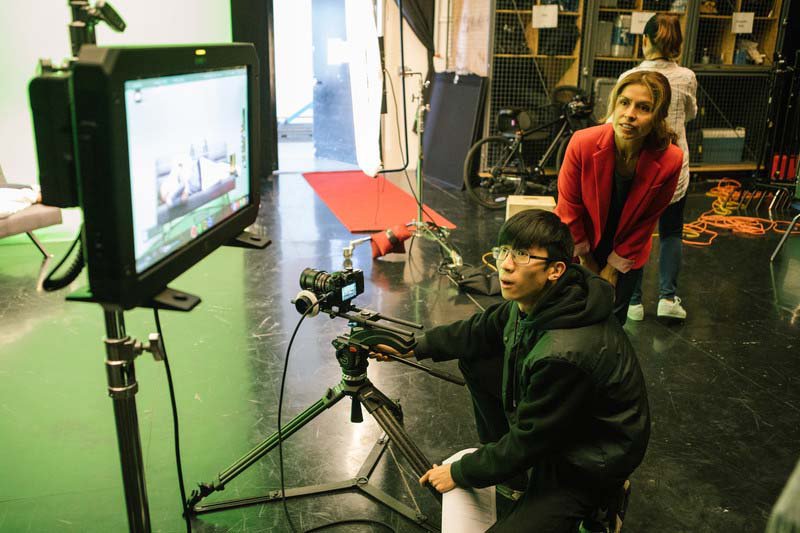
Internships and teaching assistantships
CCA Graduate students in Film have interned with Frameline, producers of the San Francisco International LGBTQ Film Festival; San Francisco Film Society, which organizes the San Francisco International Film Festival; Bay Area Video Coalition; and SoMArts, a cultural center for multidisciplinary events and exhibitions, among others. Internships provide you with hands-on experience and help you build a professional network in the Bay Area and beyond. With mentorship in pedagogy from faculty, you may also work as a CCA teaching assistant for undergraduate film courses.
Facilities and resources
- Film Cage for equipment check-out
- Media Center
- Collaborative studio space for meeting and auditions
- Production stage with green screen
- Audio suite
- Post-production lab
Faculty
Learn filmmaking from award-winning artists
Our faculty are working filmmakers and media artists with backgrounds in various practices, including directing, cinematography, sound design, and installation. Faculty work with graduate students one on one to expand their conceptual thinking and aesthetic approaches to film.
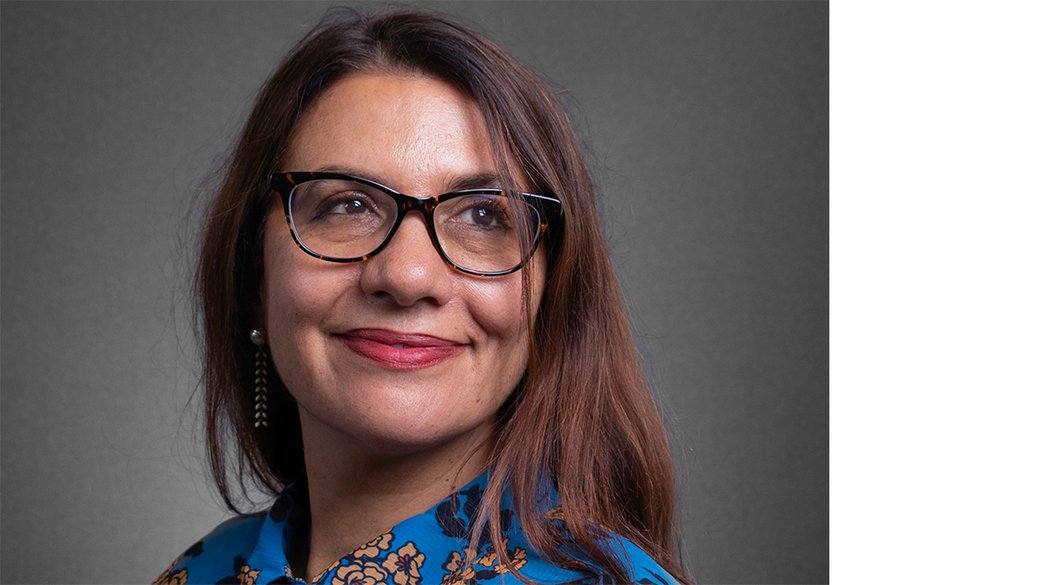
Ranu Mukherjee, Chair of Film
Chair Ranu Mukherjee is an artist who makes hybrid work in moving image, painting, and installation to build new imaginative capacities. She draws inspiration from the histories of collage, Black feminist science fiction, and Indian mythological prints of the late 19th century.
Her solo projects and exhibitions have been presented by the Asian Art Museum, de Young Museum, Los Angeles County Museum of Art, San Jose Museum of Art, Pennsylvania College of Art and Design, Tarble Arts Center, Karachi Biennale, Galerie Barbara Thumm, and Gallery Wendi Norris, her representing gallery. Mukherjee is currently a Lucas Arts Fellow at Montalvo Arts Center (2019–2022) and the recipient of a Pollock-Krasner Foundation Grant (2020).
Curriculum
Push the boundaries of your craft
The MFA Film curriculum covers the full spectrum of filmmaking, from cinema history and theory to experimental modes that depart from traditional ways of thinking and making. In addition, we encourage you to choose electives from other disciplines, such as studio art, writing, and curatorial practice, to expand your skill set and push the boundaries of your craft. In this environment of diverse professional and alternative practices, you'll be well positioned to create work that exhibits your own distinctive voice.
MFA Film
Year 1: Fall Semester
- Graduate Film Studio 1
- 3.0 units
- Film Language and Form
- 3.0 units
- Writing for the Moving Image
- 3.0 units
- Production 1
- 3.0 units
- Nonfiction Studio
- 3.0 units
Year 1: Spring Semester
- Graduate Film Studio 2
- 3.0 units
- Production 2
- 3.0 units
- Directing Studio
- 3.0 units
- Graduate Film History
- 3.0 units
- Elective
- 3.0 units
Year 2: Fall Semester
- Thesis Development Seminar 1
- 3.0 units
- Graduate Film Studio 3
- 3.0 units
- Film Aesthetics and Theory
- 3.0 units
- Individual Studio Critique
- 3.0 units
- Elective
- 3.0 units
Year 2: Spring Semester
- Thesis Project Seminar
- 3.0 units
- Outside the Box
- 3.0 units
- Graduate Film Studio 4
- 3.0 units
- Individual Studio Critique
- 3.0 units
- Elective
- 3.0 units
Total 60.0 units
Careers
Developing a thriving practice
Our students graduate with conceptual skills, technical dexterity, and professional networks that enable them to pursue lifelong careers in filmmaking. As they enter the field, alumni draw from their robust experiences at CCA, including teaching undergraduate film students and collaborating with curators and visual artists, to forge unique creative paths. Whether they choose commercial film or expanded cinema or experimental media, alumni find exciting opportunities that challenge them to redefine contemporary cinema.
Potential career paths
- Filmmaker/Director
- Cinematographer
- Screenwriter
- Film editor
- Writer/Critic
- Educator
- Curator
- Visual artist
News & Events
CCA's cinema culture
How to Apply
Submit sample reels that tell your story
Our two-year program is designated for those with a bachelor’s degree in film, visual studies, or a related fine arts field. Most of our applicants are self-driven filmmakers who are excited to join a collaborative community. Overall, admission is based on the strength of your portfolio and transcripts.
Start your application
You’ll apply to CCA and submit all required application materials via SlideRoom. Afterward, you may be contacted for an interview with a faculty member as part of the application process. Being selected for an interview doesn’t indicate applicant status or increase or decrease an applicant’s chances of being admitted into their desired graduate program. Interviews are conducted at the program’s discretion and are used to gain more insight into an application.
MFA Film application requirements
- Application and $70 nonrefundable application fee
To be completed and submitted on SlideRoom. - Resume/curriculum vitae
Please outline your educational and professional background and relevant experiences and activities, including community work. Resumes/CVs must be in PDF document format. - Two recommendation letters
You’ll request two letters of recommendation from academic or professional sources in SlideRoom by entering the contact information for your recommenders/references. They will then receive an automated email from SlideRoom with instructions for uploading their letter of recommendation. - Unofficial college transcripts
You are required to provide your complete undergraduate academic history. Students who have already taken graduate courses are encouraged to submit those transcripts, too. For international applicants, all transcripts must be in English or accompanied by a certified English translation.
Please provide an unofficial transcript from the college where you will receive or have received your bachelor’s degree, as well as unofficial transcripts for all other undergraduate coursework. Unofficial transcripts will be used for review purposes.
Once you have been admitted and enrolled, all students will need to submit official, sealed transcripts showing the completion of a bachelor’s degree to our graduate admissions office by August 1 of the fall semester they begin enrollment at CCA. - Proof of English proficiency (international applicants only)
Review and plan to meet our English proficiency requirements for graduate students. - Personal essay
In a personal essay, submitted as a PDF, write 500 to 1,000 words about your work within the context of contemporary artistic practice and why you want to study at the graduate level. - Portfolio
We encourage you to submit at least one completed recent work. You may also submit a five-minute sample reel that the review committee will watch in its entirety. The five-minute sample reel should be labeled clearly with the title, date, running time, and description of the piece, or pieces, it contains. Your role in the production of each piece must be clearly labeled as well.
You have the option to also submit: supplemental reels of up to 10 minutes in length, which will be viewed at the discretion of the committee; additional video files (we encourage you to submit at least one completed recent work); and up to 10 still images, written work, and links to web-based work.
Technical specs are as follows:- Images (up to 5 MB each)
- Videos (up to 250 MB each)
- Audio (up to 30 MB each)
- PDFs (up to 10 MB each)
- Links to media from YouTube, Vimeo, and SoundCloud are also acceptable
For prospective student inquiries, including questions about the program or how to apply, please contact us

Explore new modes of cinematic expression




